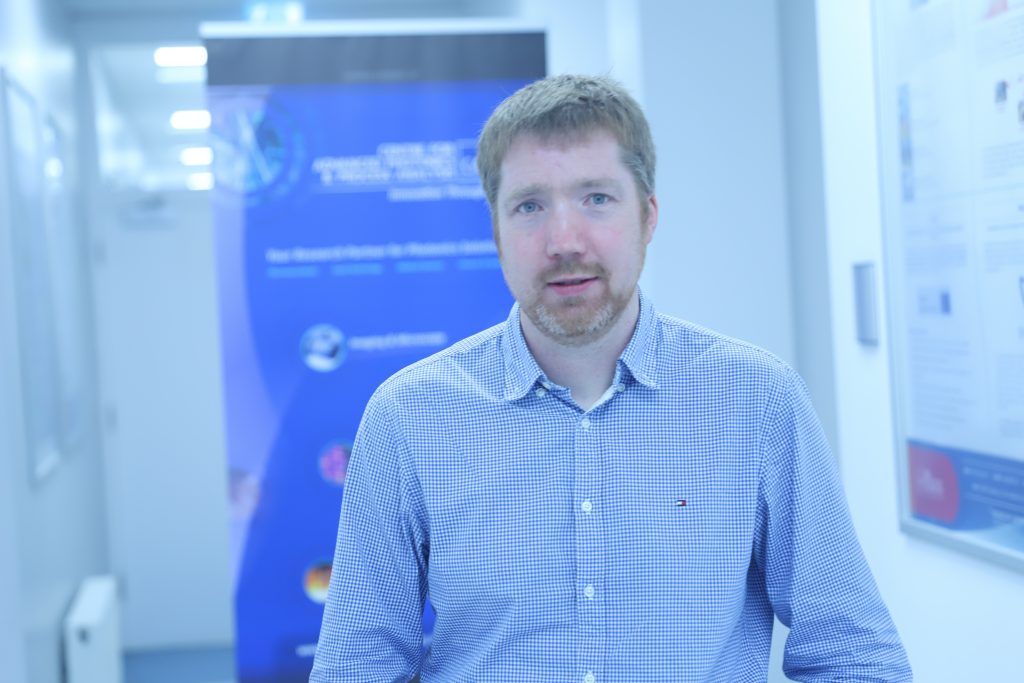
The Centre for Advanced Photonics and Process Analysis (CAPPA) is delighted to announce that their researcher Dr Anton Walsh received €542,150 in Science Foundation Ireland (SFI) Irish Research Council (IRC) pathway funding for his project, “InfraRed Laser Sensing for Irish Agricultural Emissions” (IRLS–AGRE). Dr Walsh received the funding under the highly competitive SFI-IRC Pathway Programme in which 53 projects were funded with 36 focusing on STEM areas. The project will be conducted with three collaborators, from University College Cork (UCC), Teagasc and University of Bari.
Agricultural emissions include greenhouse gases, which cause climate change, and air pollutants, which cause illness. In Ireland, agricultural emissions account for 68% and 90% of Irish national emissions of the greenhouse gases methane and nitrous oxide. Furthermore, the agriculture sector accounts for 99.1% of ammonia, a powerful air pollutant. To reduce emissions effectively, you first need to be able to measure them with high accuracy. However, to achieve accurate monitoring of emissions represents a big challenge in agriculture, due to the harsh settings and high number of sampling sites, e.g. grazing, water/feeding hotspots, manure/fertilizer spreading or slurry storage, which implies higher cost. But, it is only with abundant certifiable environmental data can the performance of abatement procedures and regulatory directives be evaluated. In summary, effective high performance gas sensors are crucial.
The IRLS-AGRE project will develop new types of sensors specifically for agricultural settings, targeting the three most important gases, methane, nitrous oxide and ammonia. The novel sensors will utilise infrared light; through a photonic integrated (PI) Quartz Enhanced Photoacoustic Spectroscopy (QEPAS) sensor to measure trace amounts of methane and nitrous oxide and an open path Off-Axis Cavity Enhanced Absorption Spectroscopy (OA-CEAS) sensor to measure trace amounts of the “sticky” ammonia. The sensors will operate independently or combined, capable of monitoring the same location with a small footprint. The Infrared laser sensors will be certifiable, robust, compact, mobile and sensitive, with low power consumption. The sensors will be benchmarked against commercial sensors and will be field tested for real-time concentration information in punitive agricultural settings.
Dr Anton Walsh, Project Coordinator said “I am delighted to have received funding for this pioneering research and look forward to collaborating with our colleagues in UCC, Teagasc and Politecnico di Bari. CAPPA will exercise the power of light, to create innovative infrared photonic sensors to assist our understanding of agricultural emissions.”
This project was one of two projects funded at CAPPA under the SFI IRC pathways funding. You can learn more about the other project here and more about the work CAPPA has conducted in the agriculture sector here.


